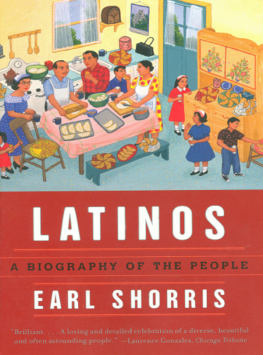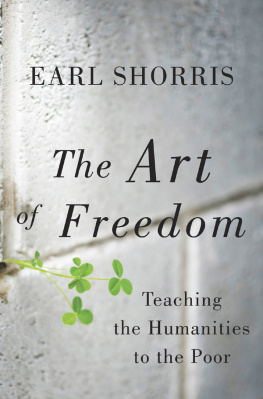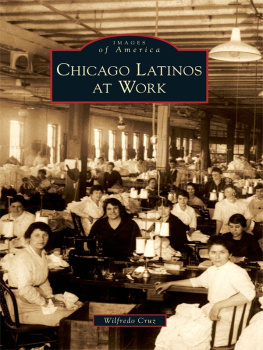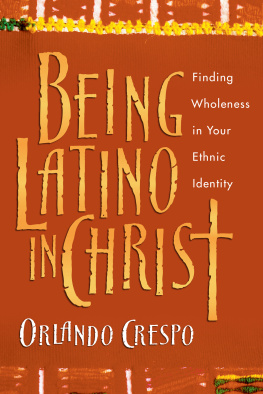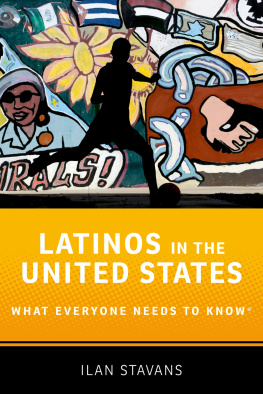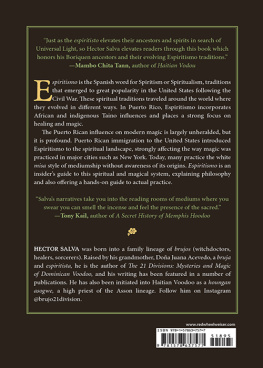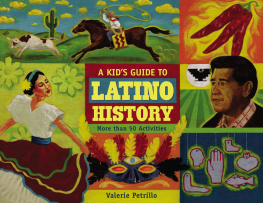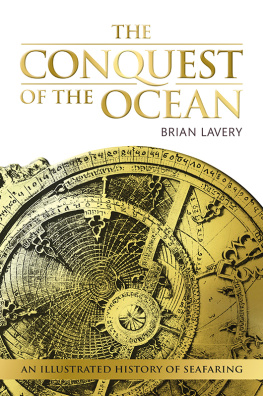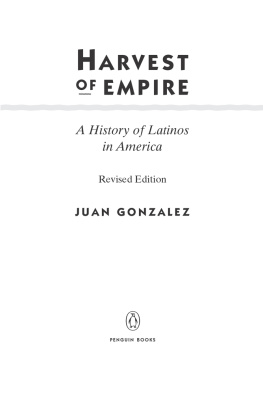This book is the work of many teachers, some of whose names and words appear on its pages. I would like to add the names of the others here. Some are old friends; others took time from their lives to tell me something for this book. I am grateful to them all: From early days, my classmates in the Douglas, Arizona, and El Paso schools; my neighbors, the Pera family; Rubito Hernndez; Jess Delgadillo; Rubn Blanco; Nacha Herrera; old friends from the El Paso Herald-Post and the Times; John Patrick; Carmen de la Vega and her sister, Rosario Nilsson; especially the Tellez familyLuz, Yvette, Steve, Keefer, and Rudy; for lessons in the high style, humor, and intellectual excitement of me Mexican mind, Sylvias great friend and accomplice, the man from Chiapas, doctor, ambassador, Prince Edmundo Lassalle; for lessons in hospitality and publishing, Concepcin Zea.
Many people helped once I began working on the book: Carlos Alvarez, David Behar, Moises Bujandra, Csar Caballero, Tula Mara Caicedo, Ruth Capelle, Ramn Cemuda, Denise Chvez, Concilio de los Padres de District 4, Rita Davis, the de la Garza family, Mike Duran, Mara Eraa, Gloria Escobar, John Estrada, the Gelabert family, Alma Gonzlez, Ray Gonzalez, Jorge Hanes, Mike Hernndez, Jorge Hinojosa, Tom Holler, Victoria Horstmann, Felipe J. Prstamo, Marilyn Kalusin, Wilfredo Laboy, Sylvia Lema, Carlos Luis, Adrian Macis, Eileen Madrid, Alicia Maldonado, Roberto Martnez, Susana Martnez, Tacho Mendiola, George Molinar, Alberto Moncada, Jonathon Moore, Douglas Mosier, Beatriz Nava, Becky Ochoa, Nereida Perez, Chevo Quiroga, Anita Rafky, Jorge Ramrez, Rev. Marcos Ramos, Luis Reyes, Silvestre Reyes, Roberto Rivera, Mary Jean and Hal Roberts, Armando Rodrguez, Texas State Representative Ciro Rodrguez, Jesse Rodrguez, Primitivo Rodrguez, Margarita Roque, Dolores Snchez, Gladys Sandlin, Cumanda Santos, Jerry Scott, Alan Shean, Marco Tulio Silva, Judy Stern Torres, Juan Tejeda, Lee Teran, Carmen Tones, Mercedes Toural, Rosa Urquiola, Councilman Frank D. Wing, Alice Valdez, Elizabeth Valdez, Tony Vsquez, Rubn Villalpando, Jesse Villarreal, and Michael Zamba.
The Lpez and Rojas families, who came from Puerto Rico, settled in upstate New York, and made a good life for themselves and their children, taught me that the problem of moving to New York from rural Puerto Rico or from the cruelest neighborhoods of San Juan could be overcome. The young men of the family have moved to New York City to make their fortunes; Billy Lpez, steady and careful, the planner, and Mike Rojas, excitable, imaginative, the fast-talking musician, writer, entrepreneur, are both destined to succeed in the city, each in his own way.
Jos Prince, whom I met through Jorge Valls, has proved to be a first rate sociologist (his profession) and the source of vast amounts of information, from the lyrics of sentimental songs to the most sophisticated aspects of Cuban culture and politics.
My thanks to the poet Norma Almquist for me months in which I lived as a writer should, in the loveliest cottage on Mount Washington.
Rina Tamayo, a Mexican woman working at the Chicano Studies Research Library at UCLA, helped me to understand the life of Zapotecan Indians living and working without papers in California. Lunches with her and Leo Estrada, the wise demographer, produced some of the best and liveliest conversation of the years I worked on the book.
David Blumenthal, Morton Coleman, John Davis, George Hambrick, Tom Kaufman, and Lourdes Nisce really did make this book possible, for which I am most grateful.
Lewis Lapham and Victor Navasky have been good friends and generous editors, I was pleased to be able to publish parts of this book in their magazines.
My friend, Roberta Pryor, who is sometimes my literary agent as well, knows something many people in publishing have forgotten, which is that writers need editors. Because of her, this book went to Starling Lawrence, who performed upon it that necessarily meticulous, occasionally magical acthe edited. And was nobly assisted in this by Richard Halstead, who never lost a page or failed to get a joke.
Much of this book is about Sylvia, who found roots in Mexico as she never could in New York; the love in the book was confirmed by her, and the thinking, when correct, was guided by her. She is a good teacher, but not quick; thirty-six years has not been nearly enough.
By Earl Shorris
FICTION
Ofay
The Boots of the Virgin
Under the Fifth Sun: A Novel of Pancho Villa
In the Yucatn
NONFICTION
The Death of the Great Spirit: An Elegy for the American Indian
The Oppressed Middle: Scenes from Corporate Life
Jews Without Mercy: A Lament
Power Sits at Another Table: Aphorisms
While Someone Else Is Eating (editor)
Latinos: A Biography of the People
A Nation of Salesmen: The Tyranny of the Market
and the Subversion of Culture
New American Blues: A Journey Through Poverty to Democracy
Riches for the Poor: The Clemente Course in the Humanities
In the Language of Kings: An Anthology of
Mesoamerican LiteraturePre-Columbian to the Present
(with Miguel Len-Portilla)
Acosta, Oscar Zeta. The Revolt of the Cockroach People. San Francisco: Straight Arrow Books, 1973.
Aguilar Melantzn, Ricardo. Madreselvas en flor. Jalapa: Universidad Veracruzana, 1987.
Allman, T. D. Miami. New York Atlantic Monthly Press, 1987.
Anaya, Rudolfo A. A Chicano in China. Albuquerque: University of New Mexico Press, 1986.
_____. Heart of Aztln. Albuquerque: University of New Mexico Press, 1976.
_____. Lord of the Dawn. Albuquerque: University of New Mexico Press, 1987.
_____. Tortuga. Albuquerque: University of New Mexico Press, 1979.
Anaya, Rudolfo A., ed. Voces. Albuquerque: University of New Mexico Press, 1987.
Anaya, Rudolfo A. and Francisco Lomeli. Aztln. Albuquerque: El Norte Publications, 1989.
Anaya, Rudolfo A. and Antonio Mrquez, eds. Cuentos Chicanos. Albuquerque: University of New Mexico Press, 1984.
Anguiano, Leonard. El Quetzal Emplumece. San Antonio: Mexican American Cultural Center, 1976.
Argueta, Manlio. One Day of Life. New York Random House, 1983.
Asturias, Miguel Angel. Week-end en Guatemala. Buenos Aires: Editorial Losada, 1968.
Attwater, Donald. A Dictionary of Saints. Baltimore: Penguin, 1965.
Avila, Joaquin. Mexican American Political Participation. Fremont, Calif.: Self-published, 1989.
Bean, Frank and Marta Tienda. The Hispanic Population of the United States. New York Russell Sage, 1987.
Benedict, Ruth. Patterns of Culture. Boston: Houghton Mifflin, 1934.
Bermudez, George S. Beliefs, Boundaries and Burnout: The Threat of Burnout in the Hispanic Clinic Model for Delivery of Mental Health Services. Ph.D. diss. City University of New York, 1988.
Bonachea, Rolando E. and Nelson P. Valdes. Cuba in Revolution. New York Anchor Books, 1972.
Burciaga, Jos Antonio. Weedee Peepo. Edinburg, Texas: Pan American University Press, 1988.
Candelaria, Nash. The Day the Cisco Kid Shot John Wayne. Tempe, Ariz.: Bilingual Press, 1988.
Casasola, Gustavo. Historia Grfica de la Revolucin Mexicana. Mexico: Trillas, 1960.
Castillo, Ana. My Father Was a Toltec. Novato, Calif.: West End Press, 1988.
Cervantes, Lorna Dee. Emplumada. Pittsburg: University of Pittsburg Press, 1981.
Cervantes M., Francisco. Francisco Villa y la Revolucin. Mexico, D. F.: Ediciones Alonso, 1960
Chvez, Angelico.

